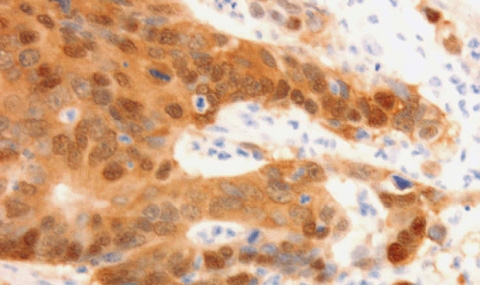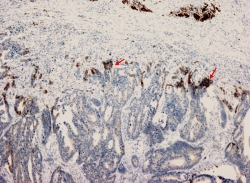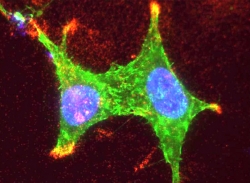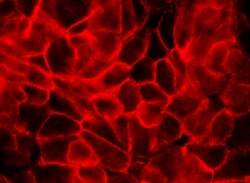Cell adhesion to neighboring cells is a fundamental biological process in multicellular organisms that is required for cell and tissue morphogenesis. Our lab is interested in the signals conveyed by cell-adhesion receptors and the underlying cytoskeleton that regulate gene expression. A tight coordination between cell-cell adhesion, signaling and gene expression is a characteristic feature of normal tissues. Changes in this coordination between adhesion-mediated signaling and gene expression are often observed during invasive and metastatic cancer development. We are investigating the Wnt/β-catenin signaling pathway, because β-catenin has a dual role in the cell: as a major linker of cadherin transmembrane cell-cell adhesion receptors to the actin-cytoskeleton, and as a key transducer of Wnt signaling to the nucleus by being a co-transcriptional activator of target genes. Hyperactivation of Wnt/β-catenin signaling is a common feature of all types of cancer, especially in colon cancer patients. We are interested in β-catenin target genes that are activated in colon cancer, in particular those that are also part of the intestinal stem cell gene signature and genes related to the process of epithelial to mesenchymal transition (EMT) that participate in colon cancer invasion. Studying the functions of these genes will hopefully shed light on both the normal intestinal homeostasis and on the development of invasive and metastatic colon cancer.

Adhesion-Mediated Signaling in Cancer Metastasis




